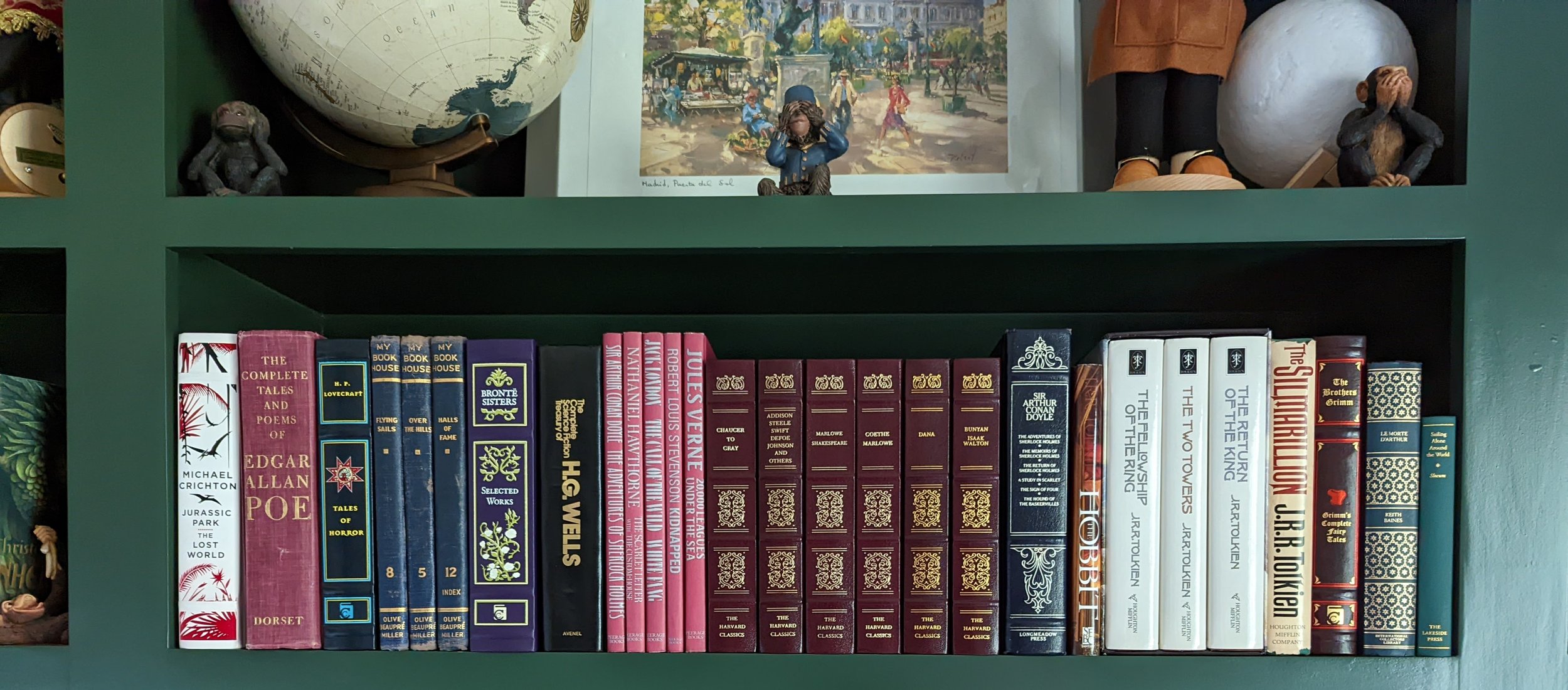
Advice for Writing, Editing, Reading, and Life.
New posts on Mondays (for non-fiction) or Fridays (for fiction)

Adeptly Avoiding Adverbs (And Allowing Them Adroitly)
Many famous writers, from Mark Twain to Stephen King, have suggested that the only good adverb is one left out of your draft. As with lots of advice offered glibly, this comes from a good place, but it has to be understood in context of why adverbs cause problems. A poorly constructed sentence without adverbs is still poorly constructed.

Anatomy of Storytelling: Do Stories Require Language?
Imagine that meaning is water. To know how much water you have, you need a system of measurement. To move the water from place to place, you need a bucket. Until you put your story into a language, it cannot be carried by someone else.

Anatomy of Storytelling: How Do You Tell a Story?
Anyone can tell a story. All of us do it daily. But not everyone can tell a story that will stick with the audience for years to come. If storytelling is the primary purpose of language (which, I’d argue it is), and language is the primary characteristic that separates us from animals (which, I’d argue it is) …
Isn’t it worthwhile to be good at it?

Anatomy of Storytelling: What Is a Story?
What even is a story? Lots of ideas came to mind. Perhaps a story is a series of events relayed by one person (or group) to another person (or group)? Or, perhaps a story is the communication of thoughts and feelings?
Ultimately I settled on this: a story is the base unit of meaning. To help me explain, I need to take a tangent into science.

Ten More Writing Prompts: Christmas Edition
Every so often, I like to challenge you, my readers, to take a break from your projects and flex your creativity on something smaller.
So here is a Christmas edition of my ongoing series, Ten Writing Prompts.

Five More Rookie Writing Mistakes
No writer is perfect. The closest we can get is to keep pushing forward, and allow others to speak into our work to help us find and fix mistakes. My hope is that you, by reading this post, are helped to find and fix these rookie mistakes (that I still sometimes make).

Three Tips to Write Better Dialogue
You may not immediately think so, but dialogue can make or break a work of fiction. When I wrote about common writing mistakes, I didn’t touch on dialogue, but it’s not because dialogue is easy. It’s because it’s hard, and the mistakes writers make when writing dialogue aren’t, in my opinion, rookie mistakes.

Publishing Pathways: Non-Traditional Publishing
At its best, non-traditional publishing fills a niche and provides a useful set of services to aspiring authors. Rather than selling the rights to your work in order to have a professional team polish and distribute your work, with non-traditional publishing, you pay a fee to have a professional team polish and distribute your work in order to keep your rights.

Publishing Pathways: Traditional Publishing
There are a lot of nitty gritty details about what different publishing deals can look like with different traditional publishing firms, but it boils down to this: the firm pays the author to purchase the rights to the work, and the author and publisher negotiate a rate of royalty that the author will be paid for each book sold.

Publishing Pathways: True Self-Publishing
With true self-publishing, if you don’t already know what you’re doing, it falls on you to figure it out. Thankfully, there are a lot of resources online you can lean on to help you cure your own ignorance, but this pathway has good and bad elements that you should be prepared for.

A Case Study on Character: The Jungle Book (1967 vs. 2016)
With the recent release of Disney’s “live-action” Pinocchio remake, it would be too easy to simply point out all the issues with stripping a character of agency and regurgitating a colorful mess onto a streaming platform.
Instead, I want to look at what happens when you take a listless character and breathe life into them. That’s right, we’re finally tackling The Jungle Book, the only remake that I would argue wasn’t just good, but better than the animated classic it drew inspiration from.

Ten More Prompts to Get You Writing
Here are ten more prompts. You can use these to begin a writing journey, or you can use them to give your brain a rest from a project that has you pulling hair out. You can use them to try a new genre you don’t normally write in, or to get some extra practice in your preferred genre. You can share the resulting work or keep it to yourself. Just write.

A Case Study on Theme: Beauty and the Beast (1991 vs. 2017)
Obviously, any great work of fiction can have more than one theme, but there is usually one central theme that any other themes hang on; a trunk from which other themes can branch. The themes of 1991’s Beauty and the Beast deal with prejudice, freedom, love, and forgiveness. And the 2017 remake fumbles basically all of those. But none more egregiously than the “trunk” that made ‘91 so great.

Five Rookie Writing Mistakes (I Still Sometimes Make)
No matter how good you get at bowling, there’s always a cap after which, even if you are getting better, you can’t really measure it. In writing there’s no cap to how good you can be; however, because “good writing” is based almost entirely on subjective criteria, there’s no clear or obvious way to measure how good a writer you are.
All you can do is identify mistakes and avoid them in the future.

Five Characteristics of a Great Writing Group
Like it or not, you will never be all you can be as a writer until you open yourself up to outside feedback. Every writer needs an editor, every editor needs a reader, and every reader needs a writer. A critique group is a wonderful way to begin widening the circle of people who see and respond to your work, but I don’t recommend just thoughtlessly messaging people in hopes of finding a group. So this week, I want to discuss some things to look for in a critique group.

Nothing New Under the Sun: What To Do When Your Idea Isn’t Completely Original
Much of western fiction is some re-imagining of the Monomyth, and even when it’s not, all ideas are inspired by something that already exists. So, what should you do when you inevitably find out that the idea you’ve been nurturing… well, the Simpsons already did it?

Why Write? Because I Love Exploration
For better or worse, there’s not a whole lot left on earth that hasn’t been explored. You have the depths of the ocean and the farthest reaching recesses of cave systems. Everything else has pretty much been found and mapped.
Writing opens a loophole.

Why Write? Because I Love to Read
I love reading.
I write in hopes that somehow I’ll leave a lasting impression on someone else. I write because I firmly believe there cannot be too many books. I write because no one knows better what I love about books than I do. I write because the idea of living in a world where there’s less to read than there could be is tragic.

Why Write? An Overview of Motivation
Why write? Why bother with this blog? Why post anything at all?
The short answer is because I can.

Guidelines for Writing in Verse: One Editor's Hierarchical Preferences
Like with any form of writing, there is no right or wrong way to write in verse, but this post is designed to help you think about the elements that often go into written verse. For the sake of organization, I’ve arranged them in the order I think they benefit written verse most.